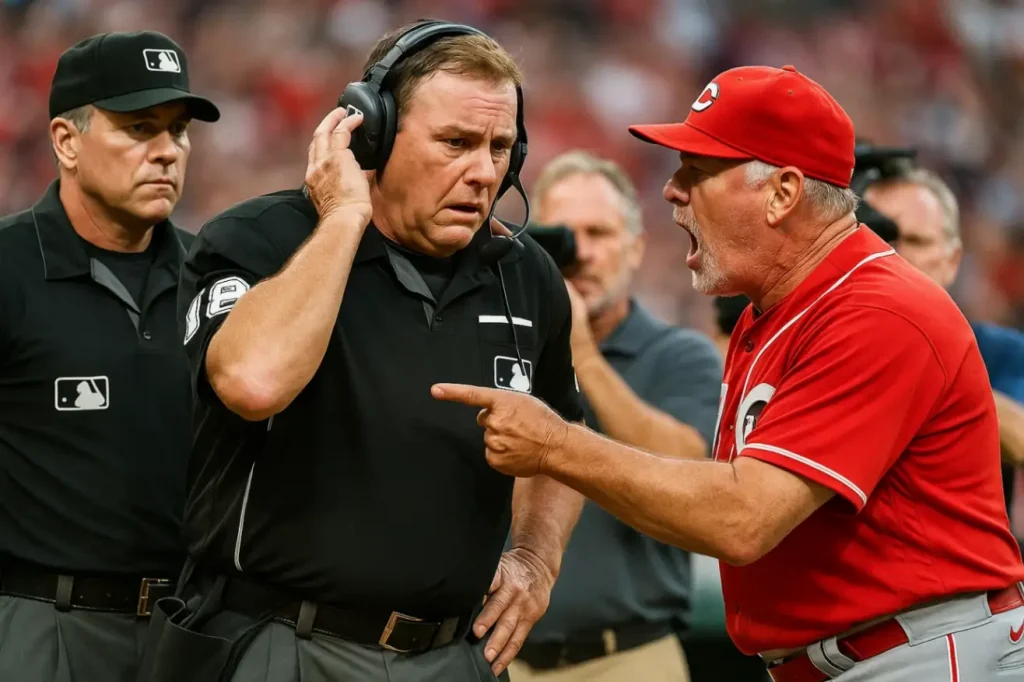MLB Judge Fired Over Deleted Messages and Betting Ties: A New Baseball Scandal
699 views, 30.08.2025
Major League Baseball (MLB) has faced its share of controversies throughout its long history, but the recent dismissal of a league judge has reignited debates about integrity, transparency, and the influence of betting on professional sports. The case involves allegations of deleted text messages and undisclosed connections to gambling, a combination that challenges the sport’s credibility at a time when legalized sports betting is expanding rapidly across the United States. This article examines the scandal from multiple angles, exploring its impact on MLB’s governance, fan trust, and the broader relationship between sports and betting.
The Controversy: Deleted Messages and Hidden Connections
The heart of the scandal lies in allegations that an MLB-appointed judge engaged in improper communications and later deleted relevant messages. While the details remain under investigation, reports suggest the deleted records may have included conversations connected to betting activities. In an era where transparency is demanded across professional sports, the act of removing communications immediately raised suspicion.
MLB has built its reputation on strict enforcement of gambling policies since the infamous Black Sox scandal of 1919. The league has consistently attempted to shield its operations from the perception of corruption. By deleting potential evidence, the judge not only undermined the integrity of the position but also risked eroding public trust in the league’s ability to enforce its own rules. The scandal quickly escalated from an internal matter to a national talking point, highlighting the fragile balance between the growing sports betting industry and the sanctity of professional baseball.
MLB’s Gambling Policies and Historical Parallels
Baseball’s history with gambling is one of strict prohibition and scandal. The lifetime ban of Pete Rose for betting on games in which he was directly involved remains the most notable example of MLB’s zero-tolerance stance. This case, however, is particularly damaging because it involves an official responsible for judgment, discipline, and fairness within the league’s governance.
In recent years, MLB has embraced partnerships with betting companies, seeking new revenue streams in an era where streaming rights and attendance fluctuate. This shift has brought both opportunity and risk. Fans can now place wagers on individual plays, player performances, and outcomes, a level of interaction unimaginable in past decades. At the same time, the league must protect its credibility. When a judge is accused of deleting potentially incriminating messages tied to betting, the issue becomes not only a matter of personal misconduct but also a systemic problem.
Risks Highlighted by the Incident
This case highlights three core risks MLB faces with betting:
Conflict of Interest: Officials with even indirect connections to betting create doubts about impartiality.
Data Manipulation: Deleting messages suggests attempts to conceal information that could compromise investigations.
Public Perception: Even minor infractions appear larger when betting is involved, threatening fan confidence.
Each of these risks ties directly back to baseball’s historic stance on integrity, making this scandal particularly damaging at a cultural and institutional level.
The Expanding Influence of Sports Betting
Legalized sports betting in the United States has grown at an extraordinary pace since the Supreme Court lifted the federal ban in 2018. MLB, like other leagues, has leaned into this market through sponsorships, data-sharing deals, and promotional campaigns. While these initiatives generate significant revenue, they also blur the lines between the sport’s regulatory framework and its commercial interests.
In this context, the judge’s alleged misconduct represents a worst-case scenario. At a time when MLB is marketing betting as an engaging way for fans to connect with the game, the league cannot afford internal figures undermining that trust. The contradiction is glaring: MLB profits from betting partnerships but must also enforce rules that distance its officials and players from betting’s influence.
To illustrate the tension, consider the following table, which outlines the key contrasts between MLB’s betting stance historically and its modern approach:
| Era | Policy Toward Betting | Key Examples | Public Perception |
|---|---|---|---|
| Early 20th Century | Strict prohibition, lifetime bans | 1919 Black Sox scandal | Deep mistrust, long recovery |
| Late 20th Century | Zero tolerance for players and officials | Pete Rose ban | Strong stance, credibility preserved |
| 21st Century (post-2018) | Partnerships with sportsbooks, data deals | DraftKings, FanDuel sponsorships | Mixed views: excitement vs. skepticism |
This contrast shows how MLB’s evolution has created a complex environment where betting is both embraced and feared, leading to confusion when scandals arise.
Legal and Ethical Implications for MLB
The dismissal of the judge has triggered discussions about the adequacy of MLB’s oversight mechanisms. How could an official in such a critical role allegedly engage in deleting communications without earlier detection? Legal experts point out that MLB, as a private entity, is not bound by the same standards as public courts but must still maintain due process in its internal governance.
From an ethical standpoint, the scandal reinforces the need for rigorous background checks, transparent reporting, and clear accountability structures for league officials. Without these safeguards, MLB risks undermining its disciplinary system—the very foundation on which fairness in the game rests.
Measures MLB Might Implement
To restore confidence, analysts suggest that MLB should consider:
Strengthening digital forensics protocols to prevent message deletion from going unnoticed.
Requiring officials to disclose any personal or financial ties to betting organizations.
Introducing third-party oversight committees to review sensitive cases.
Enhancing educational programs about betting risks for all personnel, not just players.
Each of these steps would signal MLB’s commitment to protecting integrity in an era of rapid industry change.
Impact on Fans, Players, and the Future of Baseball
The scandal resonates far beyond MLB headquarters. Fans, who already balance skepticism with passion, may question whether outcomes are influenced by hidden forces. Players, too, face heightened scrutiny, as even rumors of association with betting can damage careers. The dismissal of a judge adds another layer of anxiety, suggesting that even the guardians of the sport may not be immune to temptation.
This dynamic also affects the league’s global reputation. Baseball is an international sport, and scandals of this magnitude often shape perceptions overseas. Markets in Asia and Latin America, where betting is also popular, will closely watch how MLB manages the fallout.
To make the issue more concrete, it is useful to examine how stakeholders may respond:
Fans: Potential decline in trust and engagement, especially among traditional supporters.
Players: Increased pressure to avoid any form of gambling connection, even socially.
Sponsors: Risk evaluation before committing to long-term partnerships.
League Officials: Heightened monitoring and more stringent vetting processes.
The ripple effects demonstrate that one scandal can reshape the operational landscape of the entire league.
Conclusion: Integrity as Baseball’s Greatest Challenge
The firing of an MLB judge over deleted messages and connections to betting is not just a scandal—it is a warning. Baseball has always held integrity as its cornerstone, but as sports betting grows in influence, the league faces unprecedented challenges in protecting its credibility. This case underscores the need for stronger oversight, clearer boundaries, and a renewed commitment to transparency.
Fans may forgive mistakes, but they do not easily forgive breaches of trust. For MLB to thrive in an era where betting is both opportunity and threat, it must ensure that every official, player, and decision-maker is held to the highest standard. The scandal serves as a stark reminder that while betting may bring financial gain, integrity remains the true currency of baseball.





